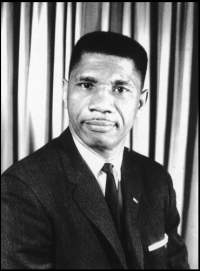I recently became a fan of Marty Nemko, and it was the video at the bottom of this page that did it. There is a man who has consumed a lot of higher education and also worked for and in such institutions (both teaching and evaluating, at Berkley), yet he says higher degrees are often unnecessary and indeed a bad choice for many individuals.
This is no new idea; really, it’s very folksy wisdom in some ways. America is obsessed with chasing dreams (a great thing), and we’re all about “finding one’s passion in life.” There a plenty of business podcasts and tweets telling us to quit our jobs and start our dream coffee shop. To an older generation, though, perhaps this sounds ridiculous.
After all, how many accountants ever had a burning desire to do accounting?
I’m not saying people should keep a job they’re miserable with, but I do say:
Finding a job you’re passionate about might not be as important as finding a way to be passionate about your work.
Some say it’s not what you do that matters but how you do it. Perhaps that oversimplifyies things a bit, but you get the point. A recent podcast from The Art of Manliness (Brett McKay) interviewed Cal Newport. Cal and Brett mentioned the research he found for Cal’s book, So Good They Can’t Ignore You: Why Skills Trump Passion in the Quest for Work You Love. I listened during breakfast and thoroughly enjoyed it. You can find it here.
Here’s why I care:
I was in college for two or three years (it’s hard to keep count, considering how long I was there), and I had no major. After finally choosing Global Studies, I decided I wanted something more–practical. I wanted to teach, so I changed my major to English, with a minor in Secondary Ed and kept Global Studies as a second minor. By the way, this was after the two photography classes I took that went towards no part of my degree. I then proceeded to accept a scholarship to study Chinese for a year in Hangzhou, which counted nothing toward my degree but was an awesome experience that changed my life. I married my wife there; in fact, she’s one of the main reasons I applied. 🙂
I now study at Harding School of Theology for a Masters of Divinity and love every class. Nonetheless, I’m 26 years old and married, so I spend much time thinking about work and school. For me, I have to balance the two, and the ratio is always an area I debate in my head: should I work more? Should I study more and finish sooner? Do I need this big degree or should I go for a shorter M.A.? I can only answer for myself and not for you.
That being said, here’s my two cents:
One shouldn’t go to college just because it’s the next “logical” step for a high school student with good or decent grades. If one does go, unsure of what to study, I recommend choosing a narrow degree in business (if engineering or another topic isn’t clearly calling to you), and sticking with it: Get in, get out. Then, if you realize you want to do something else, pursue a master’s in that field.
If you really are passionate about something that doesn’t make lots of money, pursue it. But ask yourself if you need a degree to start doing that kind of work. If you want to be a writer, I’d suggest you just start writing and save your work. Build a portfolio and present yourself in front of the person you want to work for.
If you decide to go to college, though, spend some serious time studying careers before you start. Don’t lolly-gag. Look at the United States Department of Labor’s free Occupational Outlook Handbook online, and you can find estimates on specific careers (that you’ve never even considered, perhaps!): projected growth rates/demand, salaries, required training, et cetera. An entire branch of government is dedicated to this research. Take advantage of it.
Watch Marty Nemko’s video. I like his observation that community colleges might be a great value! That’s great news for folks in McMinnville, Tennessee and just about anywhere. Watch the video to hear his thoughts based on experience and researching and working in that field. His job, after all, is to assess these things. Give him a listen and see what you think. Feel free to share your thoughts in the comments below.
This has little to do with intelligence and much more to do with pragmatism. Of course continuing learning is good for everyone, but bachelor’s, master’s, and doctoral degrees are not the only route to a smart, successful, and happy lives. Experience, seminars, internships, apprenticeships, certificate programs, trade schools, and community colleges are valuable options for continuing education.
What Colleges and Graduate Students Don’t Want You to Know:
Additional Resources: http://www.artofmanliness.com/2014/03/24/is-college-for-everyone-part-ii-the-pros-and-cons-of-attending-a-4-year-college/


